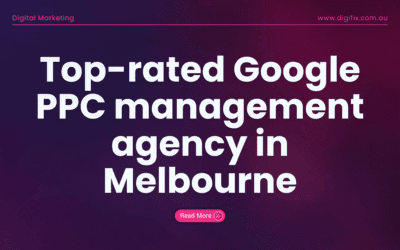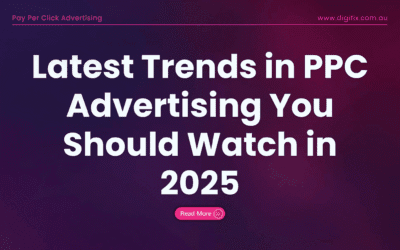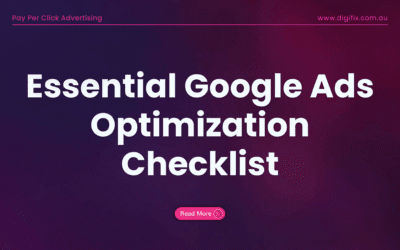How Automation Is Changing Paid Search Advertising
Are you getting the most out of your paid search ads, or is money slipping away due to old ways? Artificial intelligence is changing digital marketing, making automation in pay-per-click advertising key.
So, how does this affect your business? The truth is, AI in PPC is changing how ads are managed, ads are optimised, and sales are made.
In the fast-changing world of paid search ads, knowing about automation is vital. It helps you stay ahead of rivals.
Key Takeaways
- Discover how artificial intelligence is revolutionising pay-per-click advertising.
- Learn about the benefits of automation in PPC campaigns.
- Understand the importance of leveraging AI for improved ad optimisation.
- Explore the potential impact of AI on your paid search advertising ROI.
- Gain insights into the future of PPC advertising with automation.
The Current State of PPC Advertising in Australia
Australian businesses are finding it harder to manage their PPC campaigns. The digital world is changing fast, making it tough to keep up with paid search ads. This is due to more competition, changing customer habits, and the need for accurate targeting.

Traditional PPC Management Challenges
Handling PPC campaigns the old way takes a lot of work. It includes finding the right keywords, writing ad copy, setting bids, and checking how well ads do. Australian advertisers often find it hard to keep up with these tasks, leading to less effective campaigns. The complex PPC platforms, like Google Ads, make things even tougher.
The Growing Need for Automation in Australian Markets
The need for automation in paid advertising is growing. It’s because traditional PPC management is too hard. By using machine learning in PPC, Australian advertisers can make their campaigns better. They can target more accurately and get a better return on investment. Automation tools help with the busy work, so marketers can focus on big-picture decisions.
AI in PPC: Transforming How Advertisers Approach Paid Search
AI in PPC management is changing how we handle paid search campaigns. It uses advanced machine learning to make your campaigns better and get you more results.
Core Machine Learning Technologies Powering PPC
At the core of AI-driven PPC campaigns are key machine learning technologies. These include natural language processing (NLP) and predictive analytics. They help advertisers understand what users want and need better. AI looks at lots of data to find patterns and trends that humans can’t see.
How AI Analyses User Behaviour and Intent
AI looks at search queries, click-through rates, and conversion data to understand user behavior. This lets AI systems see what users are looking for and how they act with your ads. So, you can make ads that really speak to your audience.
The Role of Predictive Analytics in Campaign Optimisation
Predictive analytics is key in making campaigns better by predicting future trends. It uses past data and machine learning to forecast changes in user behavior. This helps you stay ahead and get the most out of your campaigns.
Using AI in PPC management can really change your paid search game. As AI gets better, it’s important to keep up with the latest in AI-driven PPC campaigns.
Major AI-Powered PPC Features You Should Be Using
As you explore PPC advertising, using AI can boost your campaign’s success. The Australian digital ad market is getting tougher. Using AI in PPC tools is key to keeping up.
Google Ads Automation Tools
Google Ads has AI tools to help with your PPC campaigns. These tools automate tasks and enhance ad performance. This means your ads can work better with less effort from you.
Smart Bidding Strategies
Smart Bidding uses AI to set the best bids for each auction. It looks at many factors to get the most value from your ads. This AI-driven approach adjusts bids in real-time for better results.
Responsive Search Ads
Responsive Search Ads adapt to what users search for. They use different headlines and descriptions. AI tests these combinations to make your ads more effective.
Microsoft Advertising’s AI Capabilities for Australian Advertisers
Microsoft Advertising also has AI tools for PPC campaigns. Their platform uses AI to target and improve ad performance. This gives you insights for better ai tools for pay per click optimization.
Social Media Platforms’ AI-Driven Ad Solutions
Social media like Facebook and LinkedIn are adding AI to their ads. AI helps with ad delivery, targeting, and performance. This means you can reach your audience more effectively.
Using these AI PPC features can greatly improve your campaign’s performance. It helps you stay competitive in the Australian digital ad market.
Measurable Benefits of AI-Driven PPC Management
The use of AI strategies for PPC success is changing how ads are managed. It uses machine learning and data analysis to make PPC campaigns better than before.
AI-driven PPC management brings many benefits. These include better performance, more efficiency, and better targeting of customers. Let’s look at these benefits closer.
Performance Improvements: CTR, Conversion Rates, and ROAS
AI in PPC greatly improves key performance metrics. AI-powered optimization boosts click-through rates, conversion rates, and return on ad spend. AI finds patterns in data that humans might miss.
Operational Efficiency and Resource Optimisation
AI-driven PPC management also boosts operational efficiency. AI automates tasks and gives smart insights. This saves time and helps use resources better. PPC experts can then focus on big decisions, not small tasks.
Enhanced Customer Targeting and Personalisation at Scale
Machine learning in PPC makes customer targeting and personalization better than ever. AI looks at user behavior and data to create targeted ads. This personal touch was once only for small campaigns, but AI makes it possible for all.
Navigating Challenges When Implementing AI in Your PPC Strategy
When you add AI to your PPC strategy, you’ll face some hurdles. AI brings many benefits, like better ad targeting and campaign optimization. But, there are challenges that advertisers must tackle.
Data Quality Requirements and Privacy Regulations in Australia
Australia has strict rules about data protection, like the Australian Privacy Principles (APPs). To use AI in PPC well, you need good data that’s accurate and follows these rules.
- Ensure data accuracy and relevance
- Comply with Australian Privacy Principles
- Regularly update and refine your data
Finding the Right Balance Between Automation and Human Expertise
AI can help with many PPC tasks, but human insight is key for big decisions. It’s important to find a balance between using AI and human input for the best results.
Key considerations include:
- Understanding the limitations of AI in PPC
- Identifying areas where human expertise is essential
- Implementing a hybrid approach that combines AI and human input
Budget Considerations for Businesses of Different Sizes
The cost of using AI in PPC varies a lot. It depends on your campaign size and complexity. Businesses of all sizes must think about their budget when using AI in PPC.
Small businesses might start with cheaper AI options. Larger enterprises can invest in more advanced AI platforms.
Practical Steps to Optimise Your PPC Campaigns with AI
Using AI in your PPC strategy can help you target better and increase your ROI. To optimise your PPC campaigns with AI, follow a few key steps. These steps can greatly improve your ad performance. First, understand where AI can really help.
Setting Up and Configuring AI-Powered Bidding
Begin by setting up AI-powered bidding strategies in your PPC campaigns. Pick the right smart bidding method for your goals.
Choosing the Right Smart Bidding Strategy
Choose a smart bidding strategy that fits your campaign goals. For example, if you want to get conversions at a certain cost, Target CPA is a good choice. Learn more about PPC strategies in our guide on PPC optimization strategies.
Performance Monitoring and Adjustment
Keep an eye on your campaign’s performance and tweak your bidding strategies as needed. This ensures you get the best results.
Using AI Tools for Ad Copy Creation and Testing
AI can greatly improve ad copy creation and testing. AI tools can create many ad variations and test them. This saves time and boosts ad effectiveness.
Audience Targeting Strategies Using Machine Learning
Machine learning helps you find and target valuable audiences. It analyses user behaviour and intent. This way, you can create campaigns that really connect with your audience, leading to higher engagement and conversion rates.
The Future of AI in Paid Search: Trends Australian Marketers Should Watch
AI is set to change the paid search world in Australia a lot. It’s making PPC campaigns smarter, giving marketers new ways to improve their work. For more on what’s happening now, check out Digifix’s article on PPC trends.
Voice Search Optimisation for PPC
Australian marketers must get ready for voice search. They need to use natural language and long-tail keywords in their PPC ads. This helps them show up better in voice search and stay competitive.
Cross-Channel AI Integration and Attribution
AI is helping with better cross-channel integration and attribution in PPC. It looks at data from different channels to understand customers better. This makes it easier to see how well ads are doing and improve ROI.
Predictive Customer Journey Mapping and Personalisation
AI is also changing how we map customer journeys. It uses past data to guess what customers might do next. This lets marketers create ads that really speak to their audience, leading to more engagement and sales.
Conclusion: Embracing AI to Gain a Competitive Edge in PPC
In the ever-changing Australian PPC scene, using AI is now essential, not just a bonus. It helps you fine-tune your paid search campaigns, boosting their performance and ROI.
To outdo rivals, tap into AI’s automation power. Use AI tools for making ad copies, targeting the right audience, and predictive analytics. These tools guide your campaign choices.
Integrating AI into your PPC plan brings many benefits. It makes your operations more efficient, improves customer targeting, and personalizes your ads on a large scale. As you progress, aim to build a strong AI-driven PPC strategy that meets your business objectives.
With the correct strategy, you can fully exploit AI in PPC. This will lead to lasting success in the Australian market.
FAQ
What is AI in PPC, and how does it work?
AI in PPC uses artificial intelligence and machine learning to improve paid search ads. It looks at lots of data to find patterns and predict what users will do. This helps make better decisions to boost campaign success.
How does AI-driven PPC management improve performance?
AI-driven PPC management boosts performance by getting more clicks and sales. It does this by fine-tuning ad targeting, bidding, and copy to match what users want.
What are the benefits of using AI-powered bidding strategies in PPC?
AI-powered bidding strategies, like smart bidding, can increase your ad spend return. They adjust bids based on user actions, device, and location. This can lead to better campaign results and more sales.
How do I get started with AI in PPC, and what tools do I need?
To start with AI in PPC, use AI features in your current platforms like Google Ads and Microsoft Advertising. You can also check out third-party tools for AI-driven PPC management.
What are the challenges of implementing AI in PPC, and how can I overcome them?
Challenges include needing good data, following privacy rules, and balancing AI with human input. Improve your data, keep up with privacy laws, and know when to use AI or step in yourself.
Can AI in PPC help with audience targeting and personalisation?
Yes, AI in PPC can help target and personalise ads by understanding user behaviour. This can lead to better campaign results and more sales.
How does AI in PPC impact the role of human advertisers and marketers?
AI in PPC is meant to help, not replace, human advertisers and marketers. It automates tasks and gives insights, freeing up time for strategy and creativity. This way, humans can make better decisions and achieve better results.





0 Comments